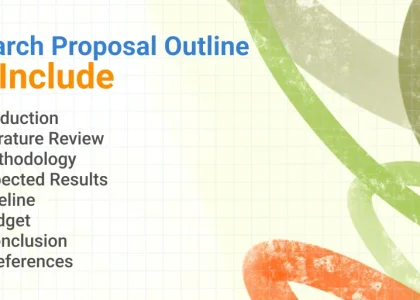When pursuing a doctoral degree, you will come across the terms thesis and dissertation. Many students assume they mean the same thing, but they actually have distinct differences. Understanding these differences is crucial for students preparing to complete their doctoral research. This blog post will break down the differences between a PhD thesis and a dissertation in an easy-to-understand manner.
PhD Thesis Vs Dissertation: Understanding the Basics
Before we delve into the differences, let’s first define what a PhD thesis and a dissertation are.
- PhD Thesis: A thesis is an original piece of research that a student conducts independently to contribute new knowledge to their field.
- Dissertation: A dissertation is a comprehensive document that presents the findings and analysis of a student’s research, often required to complete a doctoral program.
While both documents require extensive research and writing, their purpose, structure, and requirements vary depending on the country and academic institution.
Key Differences Between a PhD Thesis and a Dissertation
1. Purpose and Objective
- PhD Thesis: The primary goal of a thesis is to introduce new ideas, theories, or findings that contribute to the academic field. A student must prove their ability to conduct original research and provide significant insights.
- Dissertation: A dissertation, on the other hand, aims to demonstrate a student’s understanding of existing research in their field. It involves analyzing and interpreting past studies rather than introducing entirely new knowledge.
2. Country-Based Variations
The terms thesis and dissertation can mean different things depending on the academic system in which a student is studying.
- United States: In the U.S., a dissertation refers to the final project required for a PhD, while a thesis is typically required for a master’s degree.
- United Kingdom & Europe: In contrast, UK and European universities refer to the final PhD research project as a thesis, while a dissertation is associated with master’s-level studies.
3. Length and Depth of Research
- PhD Thesis: A thesis is typically longer, often exceeding 80,000 words, as it involves detailed primary research.
- Dissertation: Dissertations are usually shorter, averaging 40,000–50,000 words, and they focus more on secondary research and literature reviews.
4. Originality and Contribution to Knowledge
- PhD Thesis: Requires students to develop new theories or extend existing research with fresh insights.
- Dissertation: Focuses on demonstrating mastery of a subject by analyzing existing theories and knowledge rather than producing entirely new findings.
5. Research Approach
- PhD Thesis: Involves conducting experiments, case studies, surveys, or other forms of data collection to generate new knowledge.
- Dissertation: Primarily involves synthesizing, reviewing, and critiquing previous research without necessarily conducting independent experiments.
6. Submission and Defense Process
- PhD Thesis: Involves a viva voce (oral defense), where students defend their research before a panel of experts.
- Dissertation: Also requires defense in some academic institutions, but the level of scrutiny is generally less rigorous than that of a PhD thesis.
7. Time Required for Completion
- PhD Thesis: Takes several years to complete, often requiring three to five years of research and writing.
- Dissertation: Usually takes one to two years, depending on the program and institution.
Which One Do You Need to Write?
Whether you need to write a thesis, or dissertation depends on the country, institution, and level of study you are pursuing. If you’re aiming for a PhD in the U.S., you will be working on a dissertation, whereas in the UK or Europe, you will be required to submit a thesis.
Conclusion
Understanding the difference between a PhD thesis and a dissertation is essential for students pursuing higher education. While both require rigorous research and strong writing skills, they serve distinct purposes. A PhD thesis aims to introduce new knowledge, whereas a dissertation focuses on analyzing existing research. Knowing these differences will help students prepare accordingly and excel in their academic journey.
If you are working on your thesis or dissertation and need expert assistance, consider seeking professional academic writing services to ensure a well-structured and high-quality document.
Good luck with your research journey!






